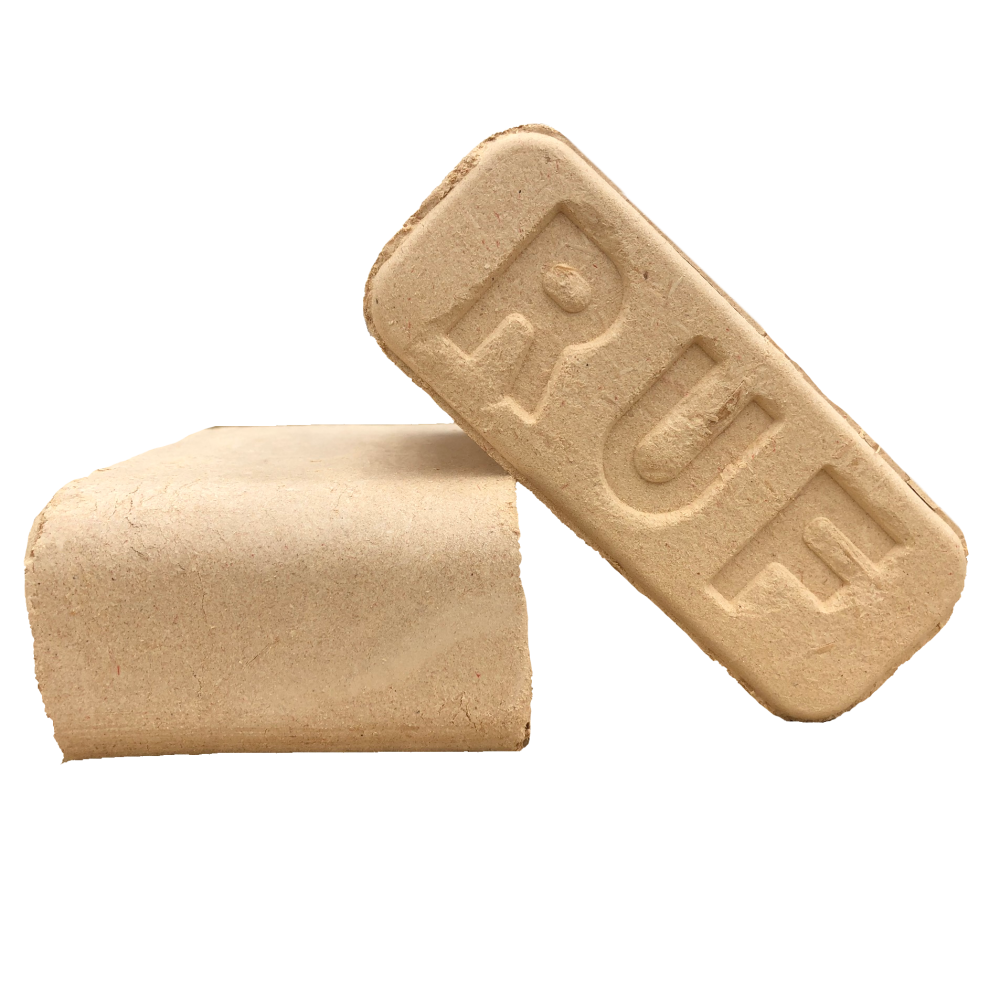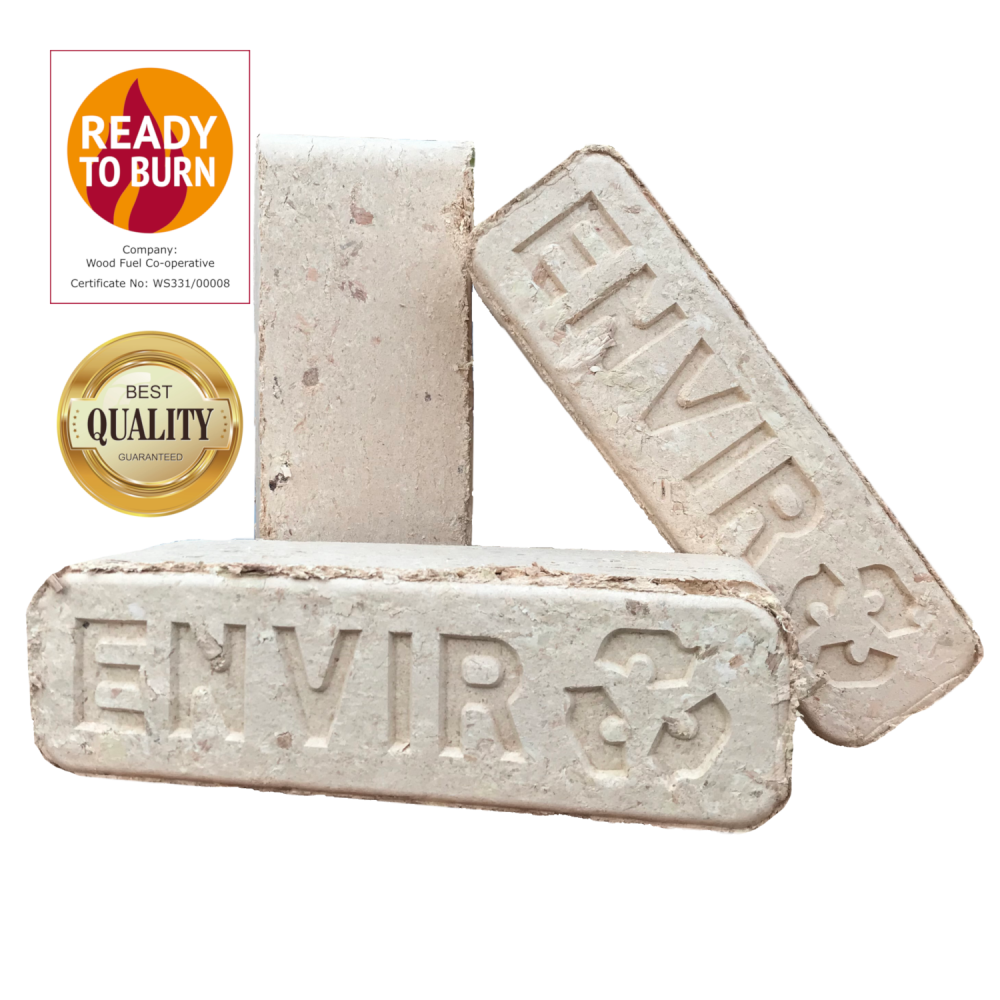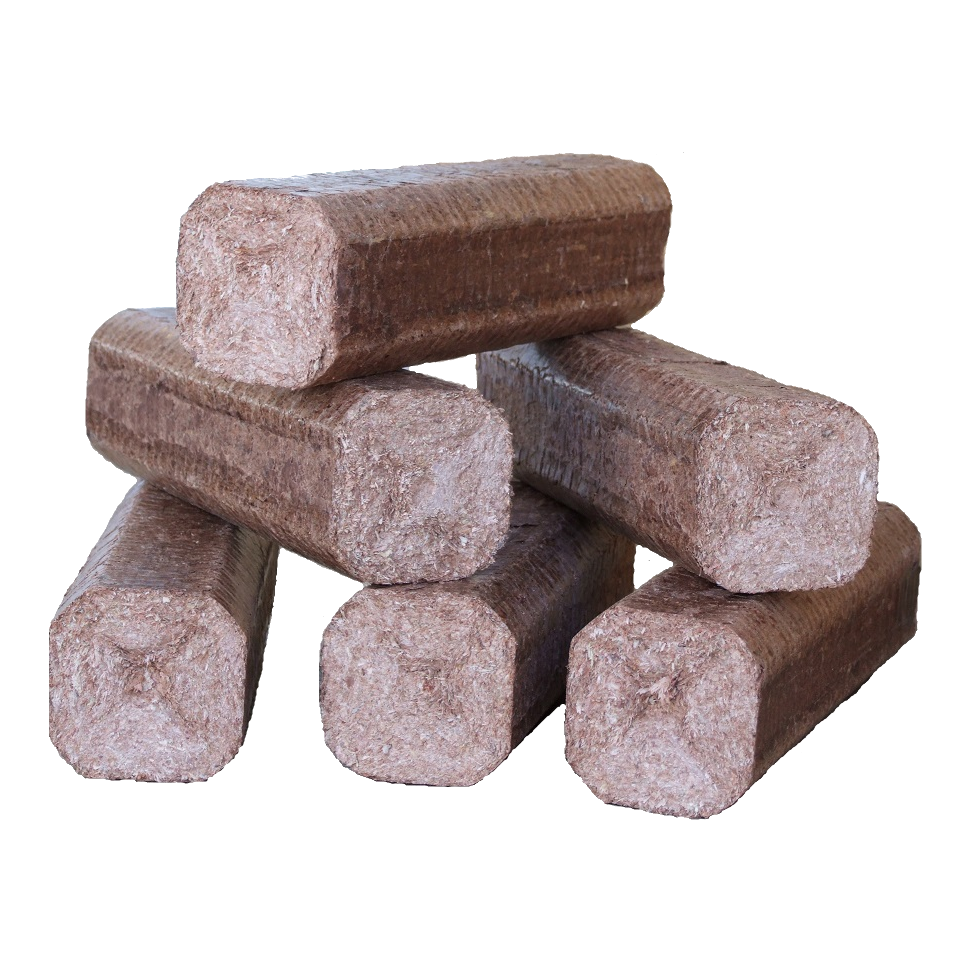Discontinued Products

Coffee Logs
Coffee Logs were made from a mix of sawdust and used coffee grounds. Ther were a popular and nice burning briquette but sadly the company that produced them went into administration.
Coffee Log alternatives:

RUF Oak / RUF Blocks
We ususally have at least one RUF briquette in stock, but our suppliers for these do change, as it’s difficult to source supplies that can keep up with our demand at a reasonable price.
RUF Oak/Block alternatives:

Oak Pini-Kay
Oak pini-kay have been replaced by BushBlok pini kay.
Oak Pini-Kay alternatives:

Hardwood Discs
Hardwood Discs were small 50mm diameter cobs made using the pure wood byproduct from a bespoke joinery business in Worcestershire. They were unfortunately a one-off as the producers do not make large quantities. We will not be re-stocking them in future.
Hardwood Disc alternatives:

Miscanthus Fire Logs
A UK product, Miscanthus Fire Logs were made from a type of perennial grass that grows from rizomes. The manufacturer ceased production and we will not be re-stocking them in future.
Miscanthus Fire Logs alternatives:

XL RUF Briquettes
XL RUF briquettes were a fantastic long burning briquette.Their chunky size made them suitable for larger stoves. Unfortunately, the suppliers were unable to keep us stocked and so we are unable to get them anymore.
XL RUF Briquettes alternatives:
There are no direct alternatives but a variety of our current products can do similar things:

Enviro-Bricks
Enviro-Bricks are made from clean, kiln-dried sawdust from a hardwood component manufacturer in the USA. We haven’t discontinued them but they are almost impossible to source due to transport issues in the USA. We will keep trying though, so watch this space.
Enviro-Bricks alternatives:
There are no direct alternatives but a variety of our current products can do similar things:

Oak-tagon
Oak-tagon were made from pure oak, ash and chestnut sawdust, which is quite fine and so produces a very dense, dust-free briquette.
Sadly, Oak-tagon were one of the products we lost after the Ukraine war started. A lot of firewood products came through Ukraine but it has become increasingly difficult to verify origin and legality of timber. This has essentially closed the door on all briquettes and logs from this region.
Oak-tagon alternatives:

Blazers
Blazers were excellent softwood briquettes, made in Wales from 100% virgin timber, sustainably sourced in the UK.
Blazers had production issues for a few years before they finally ceased production. We would love to stock them again but sadly it doesn’t look likely that production will resume any time soon.
Blazers alternatives:

Energo Top
Energo Top briquettes were a top of the range, extremely dense nestro made from clean de-barked pine. They are the closest we’ve found yet to our famous Beech Nestro.
Energo Top were one of the products we lost after the Ukraine war started. These briquettes came from the Czech Republic but it has become increasingly difficult to verify origin and legality of timber from Europe. This has essentially closed the door on all briquettes and logs from this region.
Energo Top alternatives:

Eco Nestro
Eco-Nestro were a great value briquette, made from slow grown spruce and pine.
Eco Nestro came from Russia, so it is clearly not available anymore and will not be returning in the future.
Eco Nestro alternatives:

Dragon’s Teeth
Dragon’s Teeth briquettes were a dense hardwood/softwood mix briquette, produced by a timber & stair construction company in Wales.
Sadly, the manufacturer could not produce enough product to supply us, so we will not be getting them back in stock.
Don’t worry, we have a great alternative RUF, which is also made in the UK.
Dragon’s Teeth alternatives:

Extralong
Extralong Bark Logs were are made from a mixture of clean dry softwood bark together with slow grown pine.
This combination provides an excellent balance between a long slow burn and a pleasant flame with good heat characteristics.
Extralong were one of the products we lost after the Ukraine war started. These briquettes came from the Czech Republic but it has become increasingly difficult to verify origin and legality of timber from Europe. This has essentially closed the door on all briquettes and logs from this region.
Extralong alternatives:

Baby Beech / Baby Energo
Baby Beech were a lovely, dust free briquette made from pure beech sawdust. Baby Energo were their softwood equivalent
Both of these products were lost after the Ukraine war started. These briquettes were made in Ukraine and production was halted by the Russian invasion. We will not be able to stock them again in future.
Baby Beech alternatives:

Energo Hard Top
Energo Hard Top were a large, hardwood nestro briquette.
This product became unavailable after the Ukraine war started. We will not be able to stock them again in future.
Energo Hard Top alternatives:

Pizza Briquettes
Pizza Briquettes were a beech briquette produced in Italy.
They were a nice product but expensive and we found better alternatives, which work equally well in log-fired ovens.
Pizza Briquette alternatives:

Peat Nuggets and Peat Briquettes
We no longer stock any peat products. This decision was taken primarily for environmental reasons, where we could no longer justify selling a product which causes so much environmental damage.
To find out more about our decision, please see our Environmental Responsibility statement.

